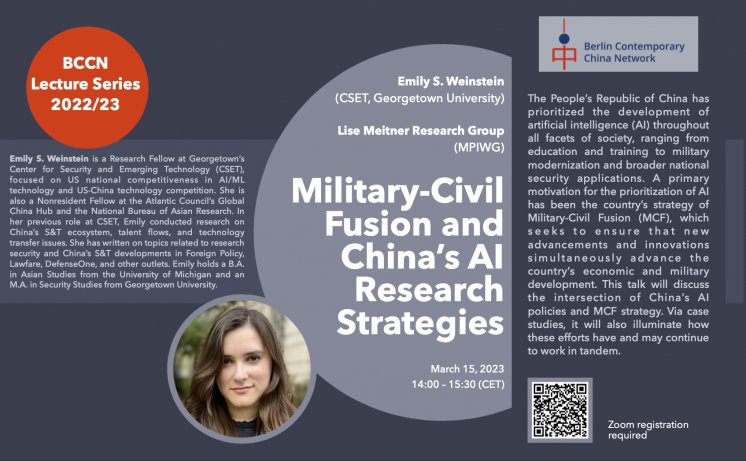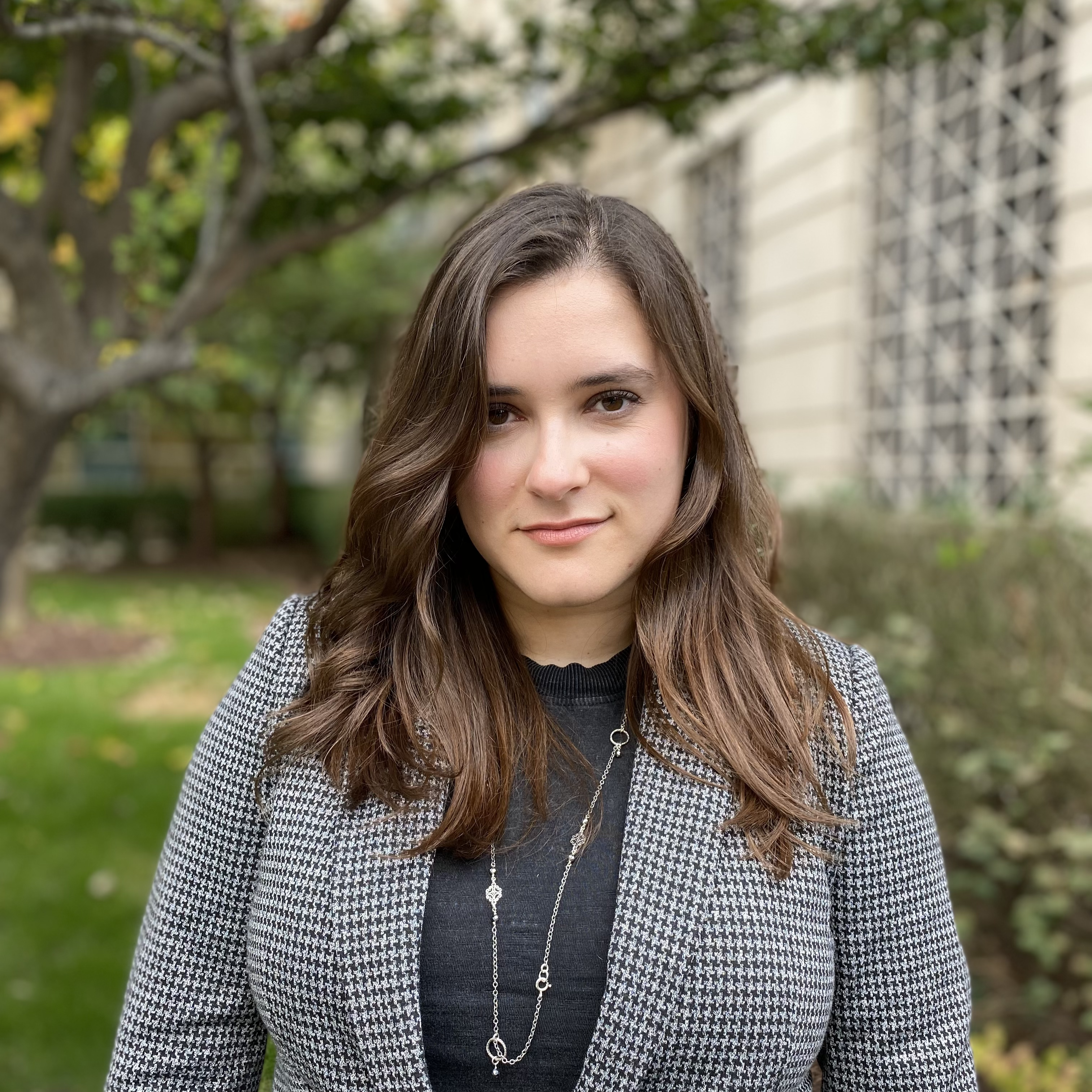Mar 15, 2023
Military-Civil Fusion and China’s AI Research Strategies
The People’s Republic of China has prioritized the development of artificial intelligence (AI) throughout all facets of society, ranging from education and training to military modernization and broader national security applications. A primary motivation for the prioritization of AI has been the country’s strategy of Military-Civil Fusion (MCF), which seeks to ensure that new advancements and innovations simultaneously advance the country’s economic and military development. This talk will discuss the intersection of China’s AI policies and MCF strategy. Via case studies, it will also illuminate how these efforts have and may continue to work in tandem.
Contact and Registration
Please register at the following link:
https://zoom.us/j/95148903040?pwd=UmNZeUJWMzYxSUw0ZkJMckJFK3V1dz09
This event is part of the LMRG & BCCN Lecture Series "China—The New Science Superpower?" For further information about the series, specific sessions, or questions concerning registration, please contact office-ahlers@mpiwg-berlin.mpg.de.
About This Series
China’s push to become a leading science power is unprecedented in its speed, scope and, arguably, success. Reactions to China’s rise in global science are dichotomous: some anticipate that science made in China may come to dominate global academia while others deem it impossible to achieve scientific leadership under an authoritarian regime. A focus on rankings and statistics alone is apparently not enough to grasp the origins, characteristics, and the possible futures of China as a science superpower.
This monthly lecture series will bring together fresh empirical insights and intriguing theoretical reflections about the development of the science system in the People’s Republic of China and its global integration. Representing a variety of social science perspectives, our guest speakers will explore the evolution of Chinese science policy, interactions of societal norms and values and academia in the PRC, factors that enable or constrain scientific innovation, the global reception of scientific output and investment from China, the securitization of international collaboration, and much more.


